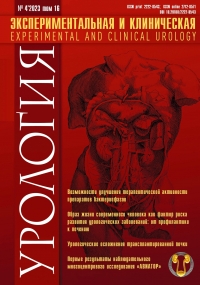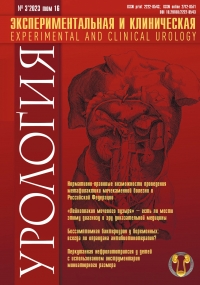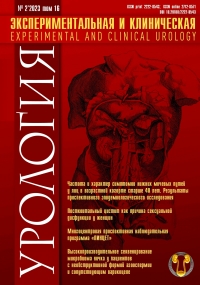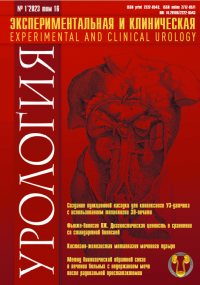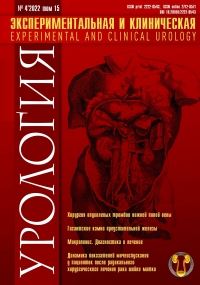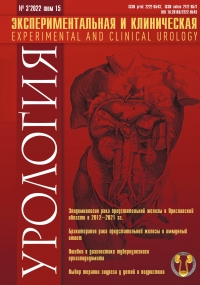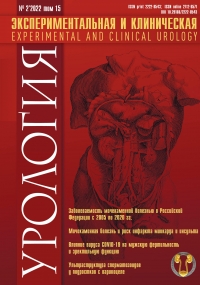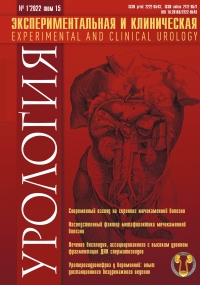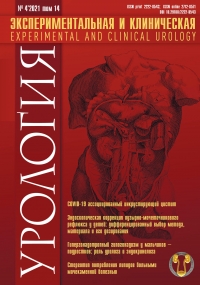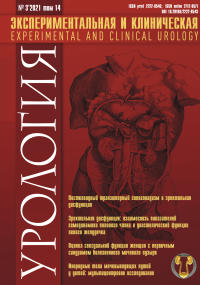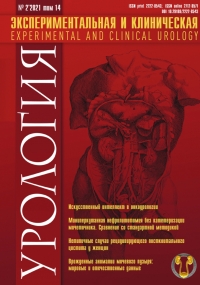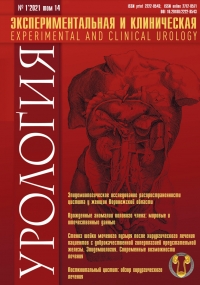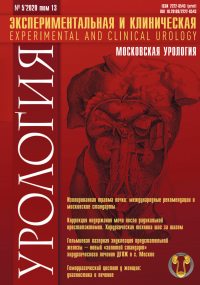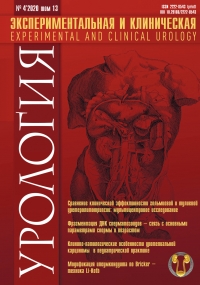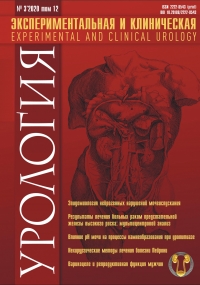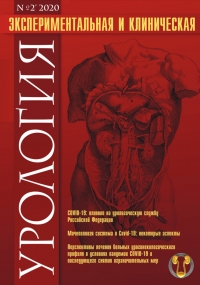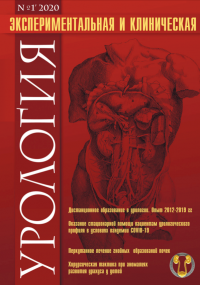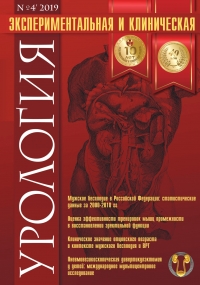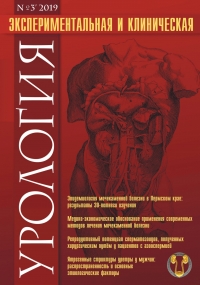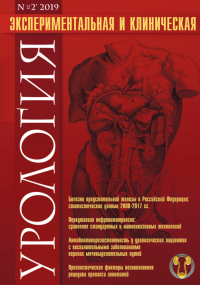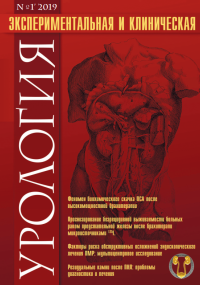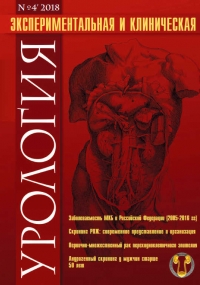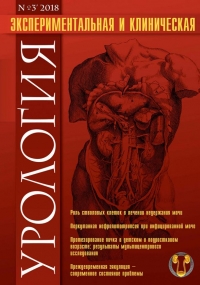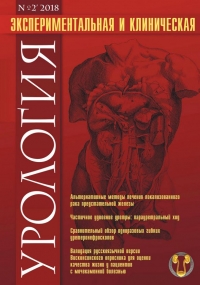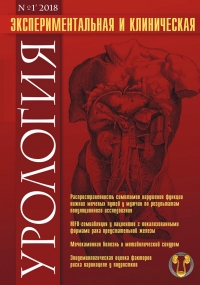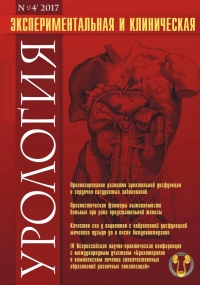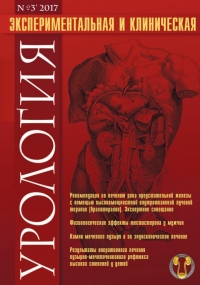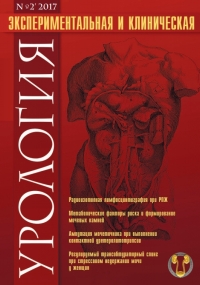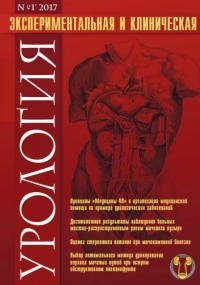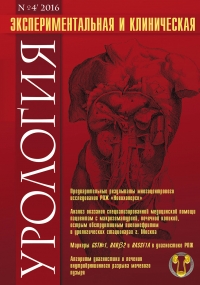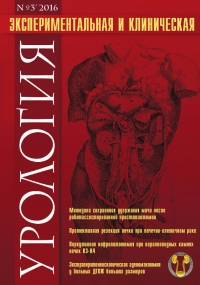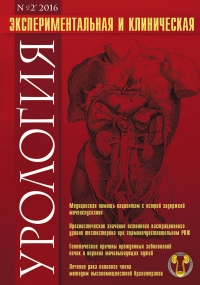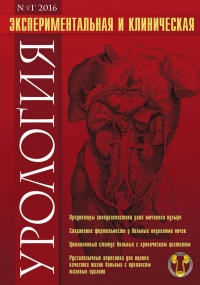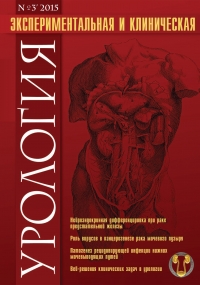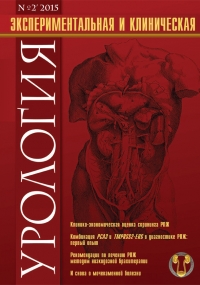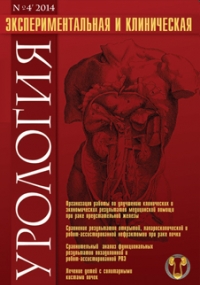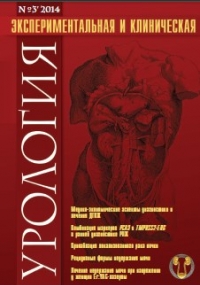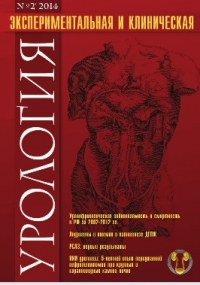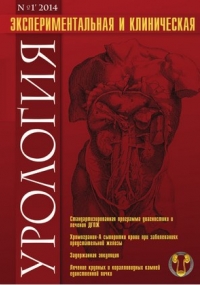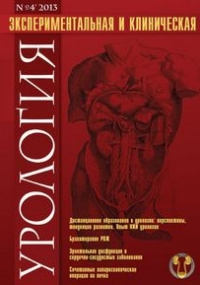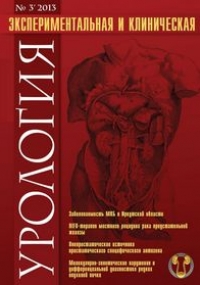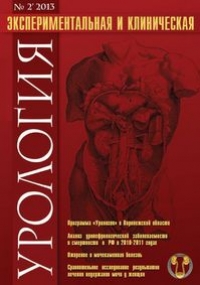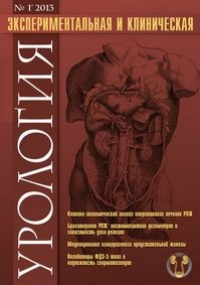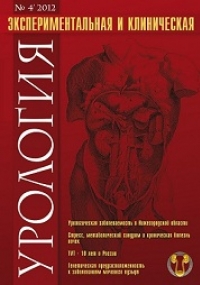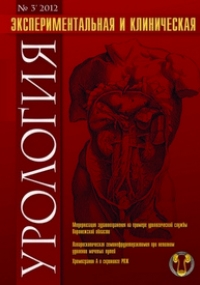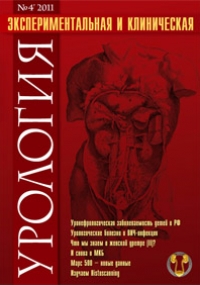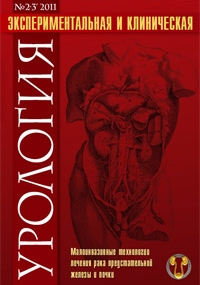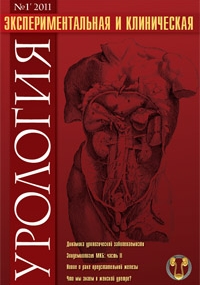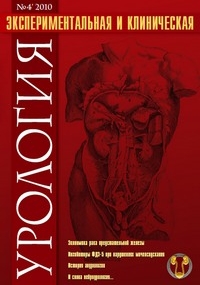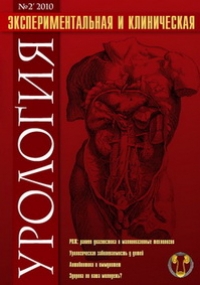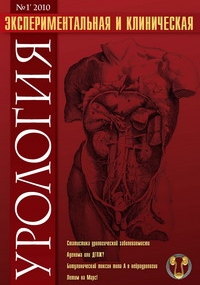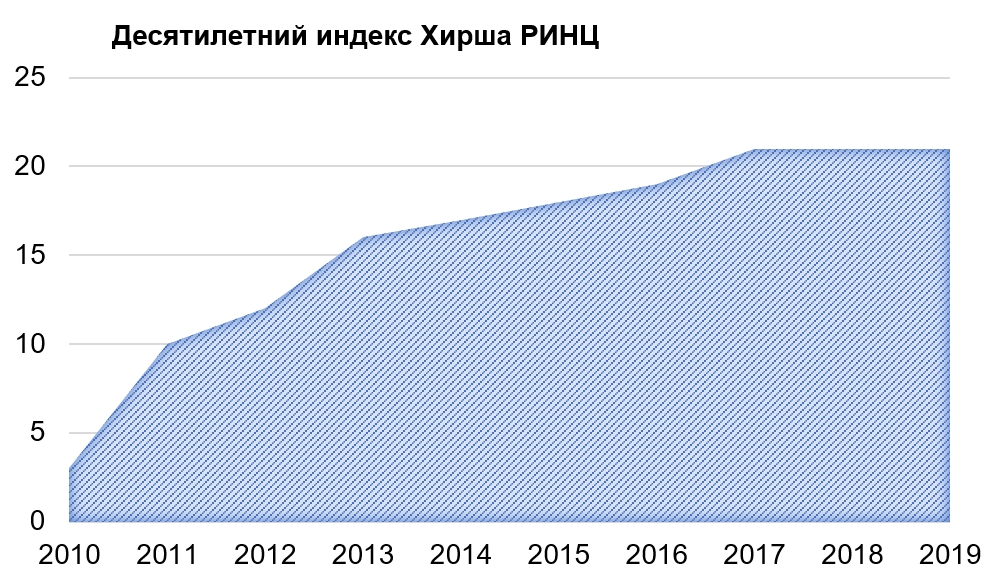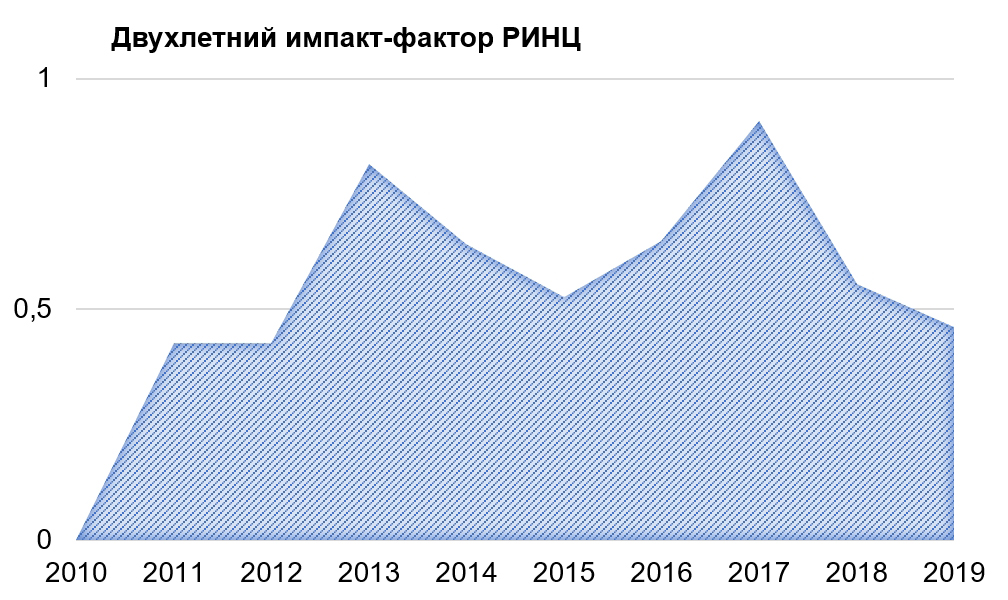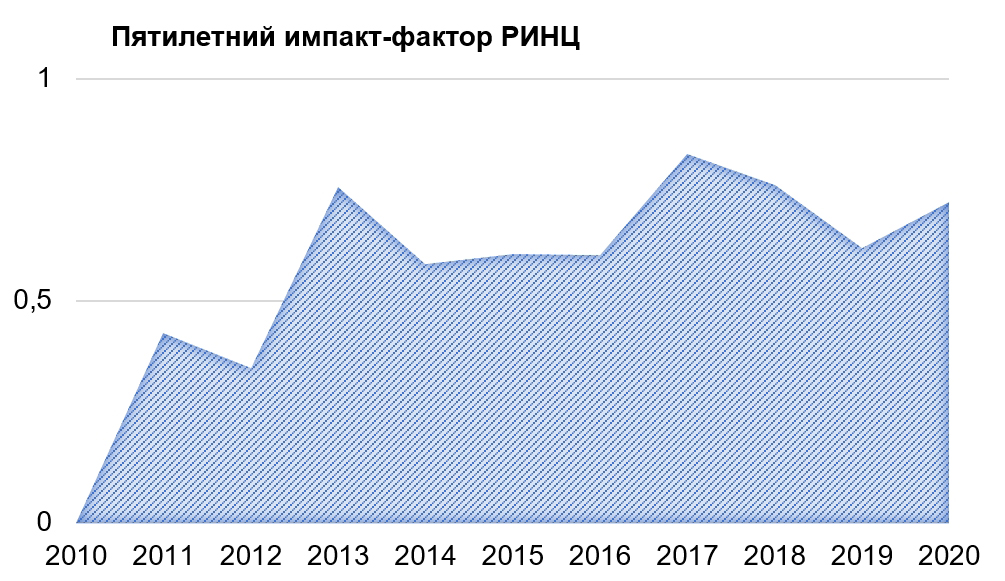Postcoital cystitis: surgical management DOI: 10.29188/2222-8543-2021-14-1-130-134
- Eliseev D.E. – gynecologist and urologist of the gynecological department with oncological beds of the Federal State Budgetary Institution «Clinical Hospital» of the Administrative Department of the Russian Federation; Moscow, Russia; https://orcid.org/0000-0002-0270-7515
- Kholodova Zh.L. – Ph.D., head of the gynecological department with oncological beds of the Federal State Budgetary Institution «Clinical Hospital» of the Administrative Department of the Russian Federation; Moscow, Russia
- Abakumov R.S. – Doctor of the gynecological department with oncological beds of the Federal State Budgetary Institution «Clinical Hospital» of the Administrative Department of the Russian Federation; Moscow, Russia; https://orcid.org/0000-0003-1339-3870
- Dobrokhotova Yu.E. – Doctor of Medical Sciences, Professor, Head of the Department of Obstetrics and Gynecology of the Faculty of General Medicine of the Federal State Autonomous Educational Institution of Higher Education «Russian National Research Medical University named after N.I. Pirogov» Ministry of Health of Russia; Moscow, Russia; https://orcid.org/0000-0002-7830-2290
- Shaderkina V.A. – Scientific editor of the urological information portal UroWeb.ru; Moscow, Russia; https://orcid.org/0000-0002-8940-4129
 685
685 Introduction. Urinary tract infection is one of the most common urological infectious diseases. An important risk factor for uncomplicated urinary tract infection in women is sexual intercourse. Post-coital cystitis is a special form of recurrent cystitis, associated with a low location of the external urethral orifice. This condition is called vestibulo-vaginal dislocation of the urethra.
Materials and methods. PubMed and Elibrary (Scientific Electronic Library) databases were searched for studies describing surgical treatment of recurrent post-coital cystitis in women. Based on the relevance and reliability of the sources, 23 articles in peer-reviewed medical journals were selected. All of the selected studies contained data on evolution of surgical treatment approaches for post-coital cystitis.
Results. In the middle of the 20th century the interest of medical community in surgical treatment of post-coital cystitis has gradually faded. Such trend was caused by imperfect surgical techniques of existing procedures (O'Donnell and Hirschhorn operations). Subsequent accumulation of experience, over several decades, allowed to establish possible mistakes in diagnosis and operation techniques. Furthermore, a constant search for new techniques and improvement of existing ones minimized potential risk of complications. Great hopes are pinned on the works of B.K. Komyakov et al., who proposed extravaginal transposition of the urethra, that implies the transposition of the urethra and its external orifice as high as possible toward the clitoris. The technique is characterized by high efficacy and a low number of complications, as demonstrated by the treatment results of 228 patients diagnosed with post-coital cystitis.
Conclusions. Various curative procedures for post-coital cystitis show the need to determine and standardize the optimal amount of surgical intervention for urethral dystopia in women.
| Attachment | Size |
|---|---|
| Download | 379.57 KB |


